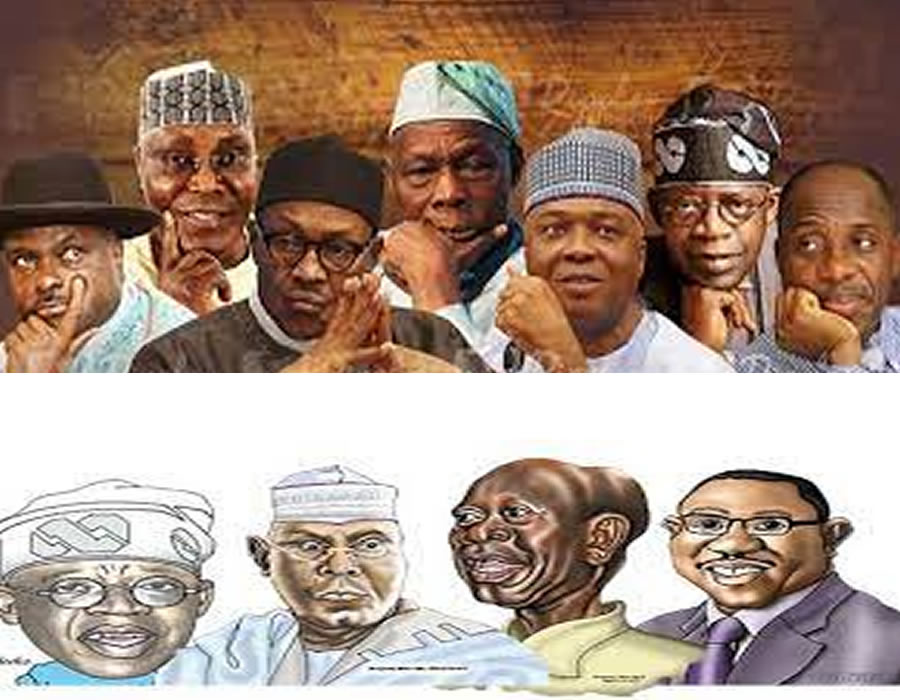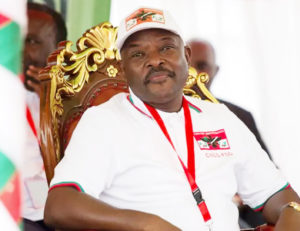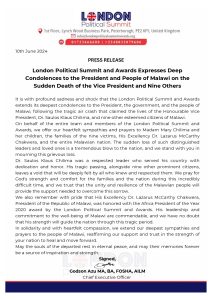Who is a political Godfather?
A political godfather is typically a powerful and influential figure within a political system who holds considerable sway over the decision-making processes, this individual often plays a key role in the rise of politicians by giving support, resources, and influence. Political godfathers can be informal power brokers, party leaders, or established figures with the ability to shape political outcomes. This term is often used in contexts where personal connections and patronage play a significant role in political actions.
Between 1998-1999, at the very inception of the fourth republic, during the return to civilian rule through a defined democratic process, there was a point one powerful individual with huge influence over the emerging political system and structure, who was seen by many as an invisible political Godfather of the era, and this person was Ibrahim Babangida (IBB), whom even for a very long time in the new dispensation attracted loyalty and homage from all corners by politicians aspiring to become anything in the political minefield.
Recently, as age and ill health creeps in to take hold of his enormous influence, powers began to shift base. We did have the likes of the Ibadan political warlord, Alh. Lamidi Adedibu, a historic Godfather, then the emergence of Obasanjo (OBJ), through IBB and Alh. Lamidi Adedibu. During this period, they never held any politically elected office, but waded enormous political influence on many elected politicians and leaders of that time, but the pendulum began to swing around, with OBJ’s assumption into office, that he has been able to accumulate enough political power to influence both state and non-state actors, while serving as the president of the country, and even after his tenure. His behavior towards the search for power and control led to the emergence of an outstanding number of sub-national political power brokers in the political sphere, and one of such individuals was, Asiwaju Bola Ahmed Tinubu, AKA (BAT). He was then the Executive Governor of Lagos State. He is an exceptionally good example of a successful political leader, turned political Godfather, with excellent political structure that has built and sustained his political influence for over 22 years of active politicking.
Other examples of political leaders, who tried to transmit from political office power, into a strong political Godfather, which has left a legacy of leadership complications in Nigeria, including OBJ, others are; Sen. Orji Uzo Kalu, former Governor of Abia State, Sen. Chimaroke Nnamani of Enugu State, Sen. Gbenga Daniel of Ogun State, Hon. Rotimi Amaechi of Rivers State, Sen. Rabiu Kwankwaso, of Kano State, Sen. T. A. Orji of Abia State, and now we’re seeing another political animal from the south-pole emerging as a political Godfather of Rivers State. In all these above-mentioned individuals, one factor binds them together, the failure to set up themselves as a transformer political Godfather with enormous influence over their selected school-boy political successor, which ended in utter disconnection. Above all, the only successful political leader transformed into a strategic political Godfather, and holding his political influence, as a strong instrument for political trading at tables of power and getting away with a good result remains one and only President Bola Ahmed Tinubu.
Irrespective of all his challenging issues, I salute him for his ability to navigate the dangerous waters of Lagos State and national politics, with such prestigious skills is highly commendable. But is it fair enough for upcoming politicians or political leaders, to be subjected to any kind/form of political Godfatherism, by selling his soul and the heart of the state to the Godfathers’ ultimate demands in this modern world of digitalization and AI.
What is the politics of Godfatherism?
Godfatherism in politics typically refers to a system where a powerful individual, often called a “godfather,” exerts noteworthy influence over political matters. This can involve controlling key appointments, decisions, and resources. It is often associated with patronage, favoritism, and a lack of transparency. The term is commonly used in the context of certain political practices, especially in regions where informal networks play a significant role in shaping political landscapes.
Has the role of political Godfatherism shaped a sustainable political society?
The role of political godfathers can have mixed effects in a political society. While some argue that these figures supply stability and support to emerging politicians, others criticize the practice for fostering corruption, nepotism, and undermining democratic principles. The long-term sustainability of a political society depends on factors such as the strength of institutions, adherence to the rule of law, and the presence of a transparent and accountable political system. In cases where godfatherism leads to a concentration of power without checks and balances, it can hinder the development of a sustainable and healthy political environment.
What is the difference between a political Godfather and a political leader?
A political godfather and a political leader are distinct concepts, though they may share some characteristics. Here are key differences:
- Influence vs. Leadership:
Political Godfather: Typically wields influence behind the scenes, often through personal connections, financial support, and informal networks. Their influence may extend to decision-making processes, appointments, and resource allocation.
Political Leader: Assumes a more visible and direct role in leading and representing a group or constituency. Leaders may be elected or chosen based on their ability to articulate a vision, garner public support, and make decisions. - Visibility and Accountability:
Political Godfather: Often runs in a more covert manner, exerting influence without holding an official position. This lack of visibility can make them less accountable to the public.
Political Leader: Typically holds a formal position, making them more visible and accountable to the public or their constituency. - Legitimacy: Political Godfather: Gains influence through personal connections, financial power, or other informal means, which may not always be perceived as legitimate or democratic.Political Leader: Usually derives legitimacy from a democratic process, such as elections, where they are chosen by the people to represent their interests.
- Involvement in Governance: Political Godfather: May not necessarily be directly involved in governance but can influence decisions through their connections and behind-the-scenes maneuvering.
Political Leader: Actively takes part in governance, making policy decisions, and implementing initiatives. - Longevity and Succession: Political Godfather: Succession may be based on personal relationships, loyalty, or financial support rather than a democratic or meritocratic process. Political Leader: Succession is often decided through established political processes, such as elections or party conventions.
While these distinctions exist, it is important to note that in some cases, individuals may embody characteristics of both political godfathers and political leaders, and the terms are not mutually exclusive, as the political landscape can be complex, with various figures assuming different roles and exerting influence in diverse ways..
Can a political leader become a political Godfather?
Yes, a political leader can transition into a role resembling that of a political godfather, especially if they accumulate considerable influence, power, and control over political processes. This transformation may occur for distinct reasons:
- Accumulation of Power: A political leader who merges power and becomes a dominant force within a political system may start to influence decisions and appointments behind the scenes.
- Establishment of Informal Networks: Over time, a political leader might set up informal networks and alliances that contribute to their influence beyond their official role.
- Control of Resources: Control over financial resources, party machinery, or key appointments can enhance a leader’s ability to shape political outcomes, mirroring characteristics associated with godfatherism.
- Longevity in Politics: A leader who stays in politics for an extended period may develop a network of loyal supporters and become a central figure in the political landscape.
It is important to note that the transformation from a political leader to a political godfather may be viewed differently depending on the context and the methods used to wield influence. In some cases, such a transition could raise concerns about transparency, accountability, and the health of democratic processes.
But from the earlier assertion intro here, one would understand some of the differences and similarities, such as IBB and Alh. Lamidi Adedibu, not being politically elected, but then explicitly politically powerful, even in the eyes of aspiring political leaders; and then you have the ‘Transformers’ who transit from political elected office, as political leaders, into being a political Godfather.
Can any political society develop significantly under the influence of a political Godfather?
The influence of a political godfather on the development of a political society is a complex and debated issue. While some argue that a strong and influential figure can supply stability and speed up decision-making, others contend that it often leads to negative consequences. Here are key considerations:
Pros:
- Stability and Efficiency: A political godfather may bring a degree of stability and efficiency to decision-making processes, particularly if they can enforce discipline within their political sphere.
- Resource Allocation: They might be effective in directing resources toward development projects, potentially accelerating infrastructure and economic growth.
- Quick Decision-Making: The centralized influence of a political godfather might lead to faster decision-making, avoiding bureaucratic hurdles.
Cons:
- Corruption and Nepotism: Godfatherism is often associated with corruption and nepotism, where political decisions are made based on personal relationships rather than merit or public interest.
- Undermining Democratic Processes: Concentrated power in the hands of a godfather may undermine democratic principles, limiting political competition and citizen participation.
- Short-Term Focus: Political godfathers might prioritize short-term gains or personal interests over long-term sustainable development.
- Weak Institutions: Overreliance on a central figure can weaken institutions, which are essential for the stability and long-term development of a political society.
Eventually, sustainable development is often associated with strong institutions, transparent governance, and adherence to the rule of law. The impact of a political godfather on development depends on several factors, including the context, the godfather’s leadership style, and the overall health of the political and institutional framework in place. It’s essential to strike a balance between effective leadership and preserving democratic values to ensure lasting and inclusive development.
How can one stop political Godfatherism in a country?
Addressing political godfatherism often requires comprehensive reforms and changes in the political landscape. Here are a few potential measures:
- Strengthen Institutions: Develop and strengthen independent institutions, such as electoral commissions, judiciary, and anti-corruption agencies, to ensure they work free from external influence.
- Transparency and Accountability: Implement measures to enhance transparency in political processes, campaign financing, and decision-making. Holding politicians accountable for their actions helps reduce the influence of godfathers.
- Electoral Reforms: Introduce electoral reforms that promote a level playing field, fair competition, and discourage the undue influence of a few individuals. This may include campaign finance reforms and measures to prevent abuse of power.
- Political Education: Promote political education and awareness among citizens to empower them in making informed choices. An educated electorate is less susceptible to manipulation by political godfathers.
- Internal Party Reforms: Political parties should adopt internal democracy, reducing the concentration of power in a few hands. Open and competitive party processes can lead to the emergence of leaders based on merit.
- Civil Society Engagement: Encourage active participation of civil society organizations in monitoring political processes. Their involvement can help expose and counteract the negative impacts of godfatherism.
- Media Freedom: Ensure media freedom and independence, allowing journalists to investigate and report on political activities without fear of reprisal. A free press can play a crucial role in exposing and discouraging political manipulation.
- Public Campaign Financing: Implement public campaign financing to reduce the reliance of politicians on individual sponsors. This helps level the playing field and reduces the influence of a few wealthy individuals.
Combating political godfatherism is often a complex and long-term process that requires a multi-pronged approach and commitment from various stakeholders.
What are the principles of a good political leader and quality leadership?
The principles of a good political leader and quality leadership encompass a range of attributes and behaviors that contribute to effective governance and positive societal impact. Here are key principles:
- Integrity: A good political leader works with honesty and moral uprightness, showing a commitment to ethical behavior and transparency.
- Vision: Effective leaders have a clear and inspiring vision for the future, guiding their decisions and policies toward long-term goals.
- Accountability: Leaders take responsibility for their actions and decisions. They are answerable to the public and other stakeholders, fostering a sense of trust.
- Inclusivity: Quality leadership involves embracing diversity and ensuring that policies are inclusive, helping all segments of society.
- Empathy: A leader should understand and empathize with the needs and concerns of the people they serve, fostering a connection with the broader community.
- Communication Skills: Effective communication is crucial. Leaders should articulate their vision, explain policies, and engage with the public in a clear and accessible manner.
- Adaptability: Leaders must be adaptable in the face of changing circumstances, open to innovative ideas, and willing to adjust strategies for the greater good.
- Collaboration: Building effective partnerships with other political leaders, stakeholders, and communities is essential for successful leadership.
- Decisiveness: Leaders need to make prompt and informed decisions, showing a capacity for effective problem-solving.
- Courage: Leadership often requires courage to take principled stands, even in the face of opposition, and to tackle challenging issues.
- Long-Term Focus: Quality leadership involves planning and executing policies with a focus on sustainable, long-term benefits rather than short-term gains.
- Respect for Rule of Law: Leaders should uphold and respect the rule of law, ensuring that institutions work independently and that legal processes are followed.
- Servant Leadership: A leader who sees their role as serving the interests of the people is often more effective in fostering a sense of trust and community.
- Continual Learning: Quality leaders are open to learning and self-improvement, staying informed about new developments and adapting their leadership style accordingly.
These principles collectively contribute to the foundation of effective political leadership, promoting stability, progress, and the well-being of the society they serve.
These principles collectively contribute to the success foundation of effective political leadership, promoting stability, prosperity, security, healthy environment for a striving society. The situation with political leadership in Nigeria is absolutely the opposite, and contrary to the prevailing principles of good and quality governance in a modern society, there is huge level of political Godfatherism, and non-state actors interference in the affairs of governance, resulting in the corrupt practices between a patron and client relations. The ever increasing crisis of political Godfather and God-son relationship in Nigeria is an epidemic, turning into a pandemic, in case of Rivers State , that requires a strong combination of political drug “Brainology vaccine”, that would be injected into the blood vessels of aging political lords, and emerging sons across the country, this would enable all politicians to remain humble, humane, responsible, rational, and morally purposeful to the service of humanity. People need to always remember and be mindful of the fact that politics is an art and science of how to be governed and to govern human society.
Mazi. Godson. Azu is a Political Analyst, Author, Consultant and the Director at C&M. Centre for Leadership and Good Governance UK.



